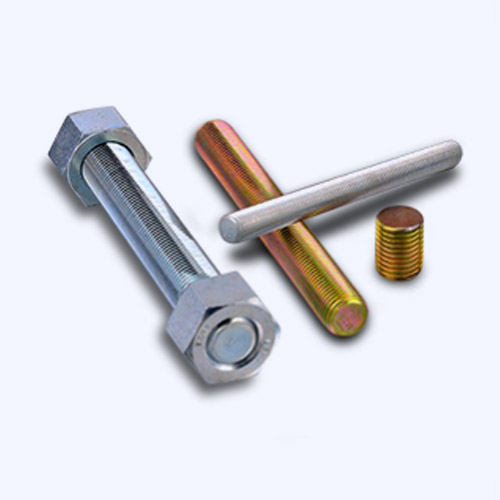

weld nuts
10月 . 20, 2024 06:57 Back to list
weld nuts
Understanding Weld Nuts A Comprehensive Overview
Weld nuts are essential components in the realm of fasteners and metal joining techniques. Their unique design and functionality make them particularly useful in various industries, including automotive, aerospace, and manufacturing. This article delves into what weld nuts are, their applications, advantages, and the considerations to keep in mind when choosing the right weld nut for your project.
What Are Weld Nuts?
Weld nuts are specialized nuts designed for welding directly onto a metal surface. They typically feature a flat base with a threaded hole in the center, allowing them to accommodate a mating bolt or screw easily. This design enables weld nuts to provide a strong and reliable fastening solution when attached to various substrates, such as steel, aluminum, or other metals.
The manufacturing process of weld nuts often involves stamping or machining to achieve the desired shape and thread specifications. The most common types of weld nuts are the hex weld nut and the square weld nut. Each type has its unique advantages, depending on the application requirements.
Applications of Weld Nuts
Weld nuts are widely used across several industries due to their versatility. Some of the primary applications include
1. Automotive Industry In automotive manufacturing, weld nuts are used for joining components such as brackets, panels, and frames. They offer a secure fastening solution that withstands vibrations and stresses encountered during vehicle operation.
2. Aerospace Applications The aerospace sector requires high-strength, reliable components. Weld nuts are often used in aircraft assembly, providing secure connections that are critical for safety and performance.
4. Furniture and Fixtures In the furniture industry, weld nuts are used to create sturdy structures in items like metal desks, shelves, and other fixtures, enabling easy assembly and disassembly.
Advantages of Weld Nuts
weld nuts

1. Strength and Durability Weld nuts provide a robust connection when welded to a base material. The weld joint creates a strong bond that can handle significant loads and stresses.
2. Ease of Use These fasteners can be easily welded onto components, streamlining the assembly process. With the right tooling and technique, weld nuts allow for quick and efficient production.
3. Space Efficiency Weld nuts are typically compact compared to other fastening methods, allowing for space-saving designs in applications where every millimeter counts.
4. Resistance to Loosening Unlike traditional nuts that may loosen over time due to vibrations, weld nuts maintain integrity due to their welded connection, ensuring reliability in dynamic environments.
Considerations for Choosing Weld Nuts
When selecting weld nuts for a specific application, there are several factors to consider
1. Material Compatibility It's essential to choose a weld nut made from a compatible material with the base material to prevent corrosion and ensure a strong weld. Common materials include stainless steel, carbon steel, and aluminum.
2. Thread Size and Type The thread size and type must match the mating fastener. Ensuring compatibility is crucial for achieving a secure connection.
3. Welding Process Different welding techniques may be required based on the design of the weld nut and the base material. Common methods include MIG, TIG, and resistance welding.
4. Load Requirements Understanding the load and stress requirements of the application will help determine the appropriate weld nut design and material for optimal performance.
Conclusion
Weld nuts are indispensable in various industries that require secure and reliable fastening solutions. Their strength, ease of use, and efficiency make them a popular choice among engineers and manufacturers. By considering factors such as material compatibility and load requirements, one can select the most suitable weld nut for their specific application, ensuring long-lasting performance and durability. As industries continue to evolve and innovate, the importance of robust fastening methods like weld nuts will undoubtedly remain crucial.
Latest news
-
Similarities and Differences Between Plain Washer and Spring Washer - Fastener Comparison Guide
NewsJun.10,2025
-
Effortless Installation Self-Drilling Window Screws - Fast, Secure, and Durable Fasteners
NewsJun.10,2025
-
Self Drilling Stucco Screws for Fast, Secure Installation Self Tapping & Self-Tapping Fasteners
NewsJun.10,2025
-
Premium Hot Dipped Galvanized Self Tapping Screws - Durable Corrosion Resistance
NewsJun.09,2025
-
Discover M12 Weld Stud Benefits & Applications Guide
NewsJun.09,2025
-
M25 Stainless Steel Washers High-Durability Fasteners for Corrosion Resistance
NewsJun.09,2025

